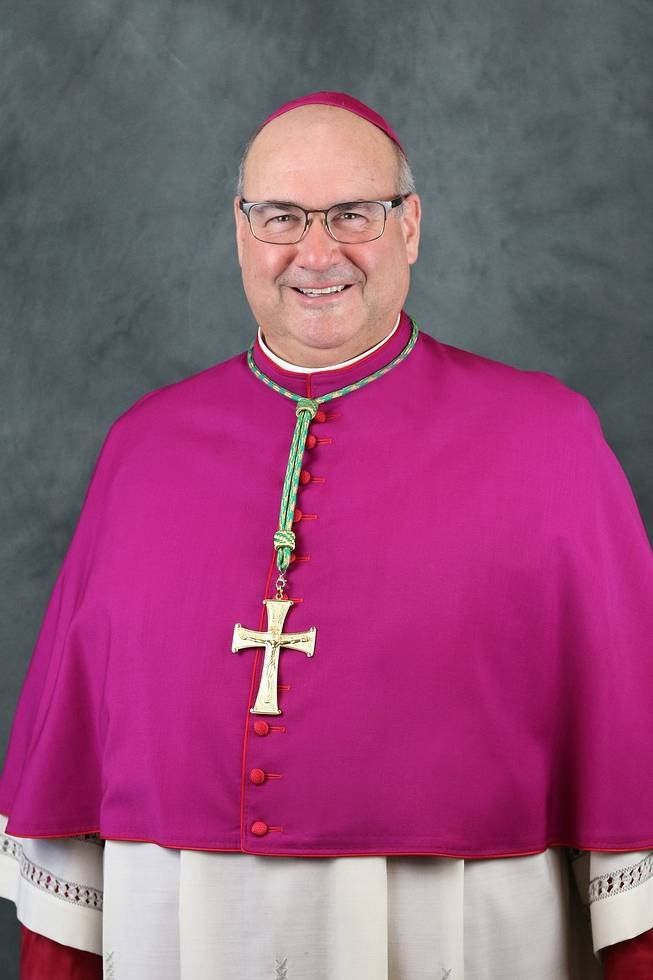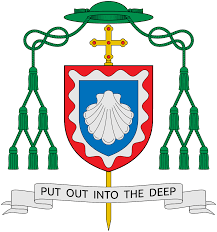A New Archbishop for Boston
This past week we learned who will be our next Archbishop. It will be His Excellency Richard G. Henning, the current Bishop of Providence, Rhode Island. According to the Announcement made at the beginning of the week His Excellency will be formally installed as Archbishop of Boston on October 31st, the Vigil of All Saints. The era of Cardinal Sean’s stewardship will draw to its peaceful close and a new era for the life of our local church will begin. We want to make sure to do our part to welcome our new Archbishop and support him in the office of great responsibility which Pope Francis has placed upon him. Archbishop Henning’s Coat-of-Arms takes the motto Put Out Into The Deep. These words are taken from the Gospel scene where Christ commands Simon Peter to “launch out into the deep and let down your nets for a draught” (Luke 5:4). Peter is reluctant to do so.
“And Simon answering said to Him; Master we have labored all the night and have taken nothing: but at Thy word I will let down the net. And when they had done this, they enclosed a very great multitude of fishes and their net broke. And they beckoned to their partners that were in the other ship, that they should come and help them. And they came and filled both the ships, so that they were almost sinking. Which when Simon Peter saw, he fell down at Jesus’ knees saying: Depart from me, for I am a sinful man, O Lord. For he was wholly astonished, and all that we with him, at the draught of the fishes which they had taken. And so were also James and John, the sons of Zebedee, who were Simon’s partners. And Jesus saith to Simon: Fear not: from henceforth thou shalt be a fisher of men. And having brought their ships to land, leaving all things, they followed Him.” (Luke 5:5-11)


